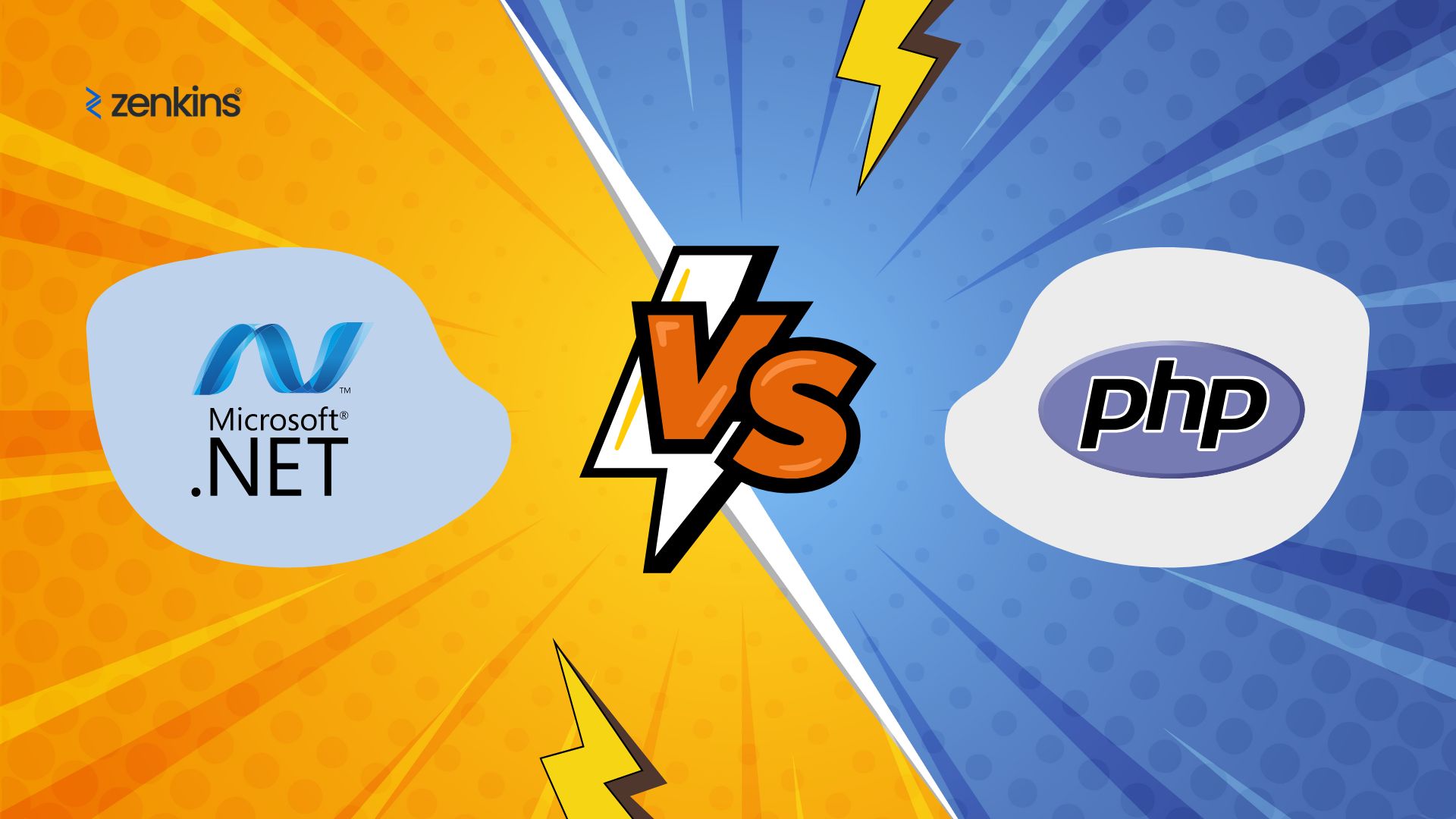.NET vs PHP Web Development
Introduction:
When it comes to web development, choosing the right framework is crucial for building robust, scalable, and efficient applications. Two popular options that often come up in the decision-making process are .NET and PHP. In this blog post, we will explore the key differences between .NET and PHP web development, helping you make an informed choice based on your project requirements.
Performance and Speed:
.NET: .NET, developed by Microsoft, is known for its performance and speed. It compiles code into machine-level instructions, resulting in faster execution times and optimized performance. The Just-In-Time (JIT) compilation process in .NET enhances runtime performance, making it an excellent choice for high-performance web applications.
PHP: PHP, on the other hand, is an interpreted language. It executes code line by line, which can result in slightly slower performance compared to .NET. However, PHP has made significant improvements in recent versions, and with proper optimization techniques, it can still handle high traffic websites and applications effectively.
Language and Syntax:
.NET: .NET supports various programming languages such as C#, Visual Basic, and F#. C# is the most widely used language within the .NET ecosystem. It follows a statically typed approach, providing strong type checking and compile-time error detection. The syntax in .NET is generally considered more verbose and structured.
PHP: PHP is a scripting language specifically designed for web development. It has a simpler syntax compared to .NET, making it easier for beginners to learn and work with. PHP follows a dynamically typed approach, allowing for flexibility but potentially requiring additional attention to type-related errors during runtime.
Frameworks and Libraries:
.NET: .NET has a rich ecosystem of frameworks and libraries, such as ASP.NET and ASP.NET Core. These frameworks offer powerful features for web development, including robust security mechanisms, extensive libraries for rapid application development, and seamless integration with other Microsoft technologies. The use of the MVC (Model-View-Controller) architectural pattern is common in .NET web development.
PHP: PHP also boasts a vast selection of frameworks, including Laravel, Symfony, and CodeIgniter. These frameworks provide developers with features like routing, database abstraction, and template engines, enabling rapid development and maintaining code consistency. PHP frameworks often embrace the MVC pattern, promoting separation of concerns and modular development.
Platform Compatibility:
.NET: .NET is primarily associated with Windows-based development. However, with the introduction of .NET Core, a cross-platform framework, developers can build applications that run on Windows, Linux, and macOS. This flexibility allows for a wider range of deployment options.
PHP: PHP is renowned for its platform compatibility, supporting various operating systems such as Windows, Linux, macOS, and Unix. This cross-platform compatibility makes it highly accessible for developers working on different environments and hosting providers.
Cost Difference:
.NET: The cost of .NET development can be higher compared to PHP. Licensing fees may be involved when using certain Microsoft technologies and tools. Additionally, .NET developers tend to command higher salaries due to the demand and specialized knowledge required for working with the framework.
PHP: PHP, being an open-source language, is free to use. There are no licensing costs associated with PHP development. Additionally, the availability of a large pool of PHP developers can contribute to lower development costs.
Time Requirements:
.NET: .NET offers a comprehensive development framework and powerful tools that can accelerate the development process. It provides a wide range of pre-built components and libraries, enabling developers to achieve rapid application development. This can potentially reduce the overall time required for project completion.
PHP: PHP’s simplicity and ease of use can contribute to faster development cycles. The extensive selection of PHP frameworks and libraries provides developers with ready-to-use components, reducing the time required for building certain functionalities from scratch.
Community and Support:
.NET: The .NET community is robust and backed by Microsoft. It offers extensive documentation, tutorials, and resources to support developers. Additionally, Microsoft provides regular updates and releases for the .NET framework, ensuring a stable and secure development environment.
PHP: PHP has one of the largest and most active developer communities. It is an open-source language with numerous online forums, communities, and documentation resources. The widespread usage of PHP means you can find ample support, tutorials, and ready-to-use code snippets for various use cases.
Not Sure? We will help you to Choose The Right Framework For Your Project
Conclusion:
Choosing between .NET and PHP for web development depends on your project requirements, performance needs, familiarity with the language, cost considerations, and time constraints. .NET offers strong performance, extensive Microsoft integration, and a structured development approach, while PHP provides flexibility, a simpler syntax, wide community support, and cost advantages. Evaluate your project’s specific needs, weigh the differences mentioned above, and consider factors such as performance, platform compatibility, cost, and time requirements to determine which framework best aligns with your development goals.




